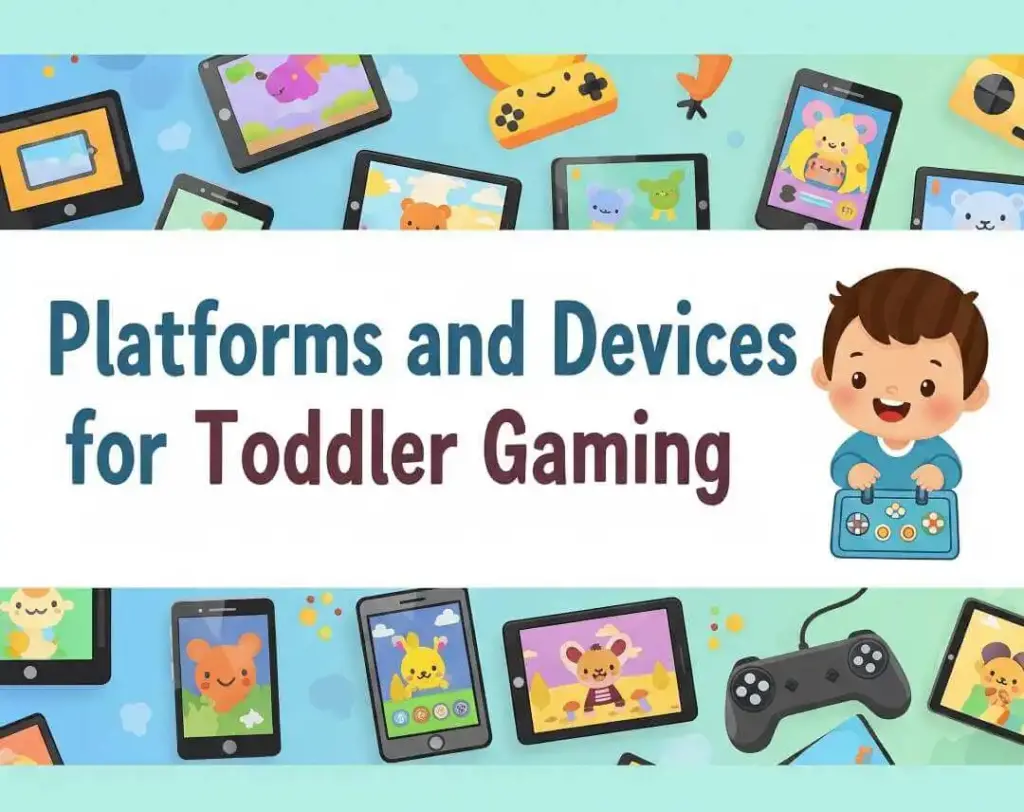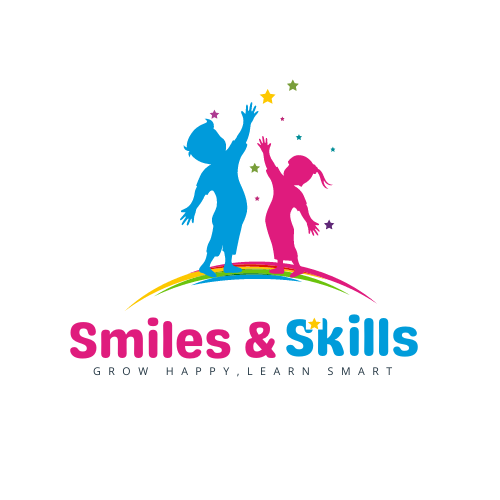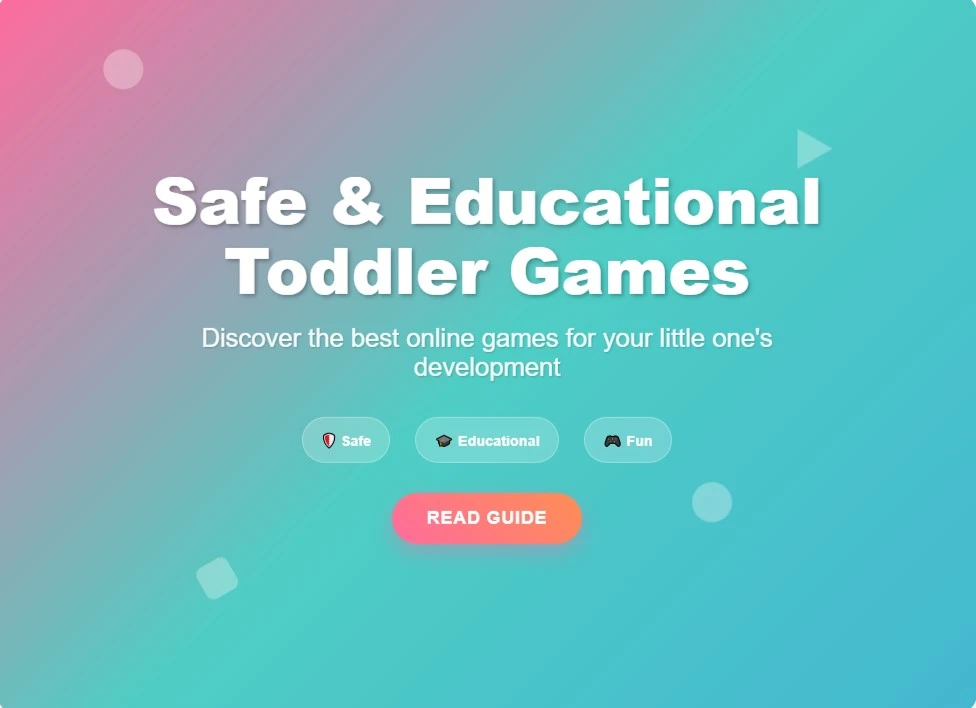In today’s digital age, toddlers are growing up surrounded by technology. As parents and caregivers navigate this new landscape, toddler online games have emerged as powerful tools that can entertain, educate, and engage young minds when used appropriately. This comprehensive guide explores everything you need to know about selecting high-quality digital experiences for your little one.
What Are Toddler Online Games?
Toddler online games are interactive digital experiences specifically designed for children between the ages of 1-3 years. These games feature:
- Simple mechanics (tapping, dragging, or basic swiping)
- Bright, engaging visuals with minimal distractions
- Clear audio instructions and positive reinforcement
- Educational concepts presented in play-based formats
- Age-appropriate content that aligns with developmental milestones
Unlike games for older children, toddler games emphasize exploration rather than competition, with no complicated rules or winning conditions that could frustrate developing minds.
The Benefits of Online Games for Toddlers
When chosen carefully and used in moderation, online games offer numerous benefits for toddlers:
Cognitive Development
- Problem-solving skills: Simple puzzles and matching games help toddlers learn cause and effect
- Early mathematics: Games that involve counting, sorting, and recognizing patterns build foundational math skills
- Language acquisition: Interactive stories and naming games expand vocabulary
- Memory enhancement: Memory matching games strengthen recall abilities
Fine Motor Skills
- Tapping, swiping, and dragging on touchscreens help develop finger dexterity
- Hand-eye coordination improves as toddlers interact with on-screen elements
- Precision movements are practiced in a low-pressure environment
Social-Emotional Learning
- Characters that model appropriate emotional responses help toddlers identify feelings
- Taking turns in simple multiplayer games builds patience
- Overcoming challenges builds resilience and confidence
Early Tech Literacy
- Basic navigation skills prepare toddlers for a digital future
- Familiarity with interfaces develops at an age when learning is intuitive
- Foundation for healthy technology habits can be established early
Safety Concerns and Parental Controls
While toddler online games offer benefits, safety remains paramount. Parents should consider:
Content Safety
- Choose games specifically designed for toddlers, not “kids” games that might contain advanced concepts
- Review games before allowing independent play
- Select games without in-app purchases or with strong parental gates
- Avoid games with advertisements, particularly video ads
Screen Time Management
- The American Academy of Pediatrics recommends limiting screen time to 1 hour per day of high-quality content for children ages 2-5
- For children under 2, video chatting is acceptable, but other screen time should be minimal
- Use parental control features to set time limits on devices
Data Privacy
- Check privacy policies to understand what information games collect
- Choose games that don’t require excessive permissions
- Consider offline games that don’t connect to the internet when possible
Practical Parental Controls
- Enable screen time limits in device settings
- Set up kids’ profiles on tablets and smartphones
- Use dedicated children’s app stores with age filters
- Consider family subscription services that eliminate ads and in-app purchases
Criteria for Choosing Quality Toddler Games
Not all toddler games are created equal. Here’s what to look for:
Age-Appropriate Design
- Simple interfaces: Minimal menus and clear navigation
- Forgiving gameplay: No penalties for mistakes
- Appropriate pacing: Not too fast or overstimulating
- Intuitive controls: No reading required
Educational Value
- Clear learning objectives aligned with developmental milestones
- Open-ended play that encourages creativity
- Activities that build on real-world experiences
- Opportunities for parent-child interaction
Engagement Factors
- Gentle encouragement rather than excessive rewards
- Characters and themes that resonate with toddlers
- Variety to maintain interest
- Progressive challenges that grow with your child
Technical Considerations
- Loads quickly and runs smoothly
- Works without internet connection (ideal for travel)
- Regular updates and support from developers
- Positive reviews from parents and educational experts
Platforms and Devices for Toddler Gaming

Different platforms offer various advantages for toddler gaming:
Tablets
- Pros: Larger screens make interaction easier for small hands; portable; dedicated kids’ tablets available
- Cons: More expensive; potentially more fragile; may encourage more screen time due to immersive nature
- Best for: Longer play sessions, educational games with detailed graphics, shared parent-child experiences
Smartphones
- Pros: Highly portable; most families already own one; easier to monitor usage
- Cons: Small screen can be challenging for some games; easy for toddlers to exit games or access other apps
- Best for: Quick games while traveling; simple tap-based activities; emergency entertainment
Smart TVs and Streaming Devices
- Pros: Larger display for shared viewing; some offer motion controls; easier for parents to monitor
- Cons: Less interactive; fewer dedicated toddler apps; may require additional controllers
- Best for: More passive educational content; simple motion-controlled games; family game time
Dedicated Learning Systems
- Pros: Designed specifically for children; durable; often have extensive parental controls
- Cons: Limited game selection; additional expense; may be outgrown quickly
- Best for: Parents concerned about screen time on multi-purpose devices; children who need more durable options
Expert and Parent-Recommended Toddler Online Games
Based on educational value, safety, and engagement, these categories of games consistently receive high marks:
Color and Shape Recognition
- Games featuring basic sorting activities
- Simple matching games with clear visual and audio feedback
- Drawing and coloring activities with limited options
Early Literacy
- Interactive storybooks with read-along features
- Letter recognition games with phonetic sounds
- Simple word-building activities for older toddlers
Music and Movement
- Rhythm games with simple tap interactions
- Virtual instruments that respond to touch
- Dance-along videos with interactive elements
Nature and Science Exploration
- Virtual pet care teaching responsibility
- Weather and seasons interactive displays
- Simple cause-and-effect science activities
Creative Play
- Digital versions of classic toys (blocks, play-dough, etc.)
- Open-ended creation tools with age-appropriate controls
- Simple dress-up and character customization
Balancing Digital and Real-World Play
While online games offer valuable learning opportunities, they’re most effective as part of a balanced approach to play:
Integration Strategies
- Use digital games to reinforce concepts learned through physical play
- Select games that encourage movement and physical interaction
- Follow up digital experiences with related hands-on activities
- Consider games that incorporate real objects (like flashcards or toys)
Co-Playing Benefits
- Playing together enhances learning through conversation
- Parents can help connect digital concepts to real-world experiences
- Shared play builds relationships while monitoring content
- Co-playing models healthy technology use
Setting Healthy Boundaries
- Establish tech-free times and zones in your home
- Create consistent routines around when games are available
- Offer alternatives when screen time ends to ease transitions
- Focus on quality of digital play rather than quantity
Conclusion
Toddler online games, when thoughtfully selected and properly supervised, can be valuable tools in your child’s development journey. By understanding what makes a quality digital experience, implementing appropriate safety measures, and balancing screen time with other activities, you can help your toddler navigate the digital world in a healthy, educational, and enjoyable way.
Remember that your involvement is the most important factor in making digital experiences meaningful. By approaching toddler online games as opportunities for connection rather than digital babysitters, you can enhance their value while building important foundations for future learning.

